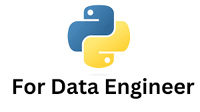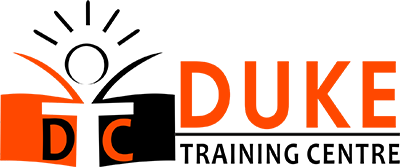Python Programming Course Overview
The goal of the comprehensive Python programming course is to acquaint students with the flexible world of Python, one of the most widely used and sought-after programming languages of the modern era. From the fundamentals of Python syntax and programming ideas to more complex subjects like object-oriented programming and GUI development, this course covers it all. Beginning with Module 1, students will learn about Python, including how to install it on various operating systems and use Python IDLE for scripting and interactive programming. As they advance, they will study data structures like tuples, lists, and dictionaries as well as types, variables, loops, and flow control with if/else/elif statements. In addition, the course covers functions, file operations, handling exceptions, and object-oriented programming concepts—all of which are critical for creating reliable and maintainable code.In addition, the course delves deeply into the writing and usage of Modules, emphasizing the significance of code organization for maintainability and reusability. After completing the Python bootcamp, students will be able to use Tkinter to create graphical applications, with an emphasis on using event-driven programming to create interactive user interfaces. This Python bootcamp course is a great first step toward becoming a skilled Python developer because it is designed to accommodate both newcomers and experienced programmers.
Course Prerequisites
Of course! The following minimal requirements must be met in order to successfully complete the Python Programming course:
- Installation and programming exercises require a basic understanding of computer operations, such as creating files and navigating file systems.
- knowledge of any text editor—such as Notepad or TextEdit—because you’ll be writing and editing code.
- Basic problem-solving abilities to understand the logic and concepts covered in the course on programming.
- While it’s not strictly required, having knowledge of any other programming language can help you understand concepts faster.
- A readiness to learn and experiment with coding, since practical experience is an essential part of the education process.
- Possession of the necessary administrative access to install software on your computer in order to configure the Python environment.
Although these prerequisites will be helpful, keep in mind that the course is meant for beginners only and will walk you through the fundamentals of Python programming step-by-step.
Target Audience for Python Programming
The Python Programming course from Duke Training Centre provides aspiring developers and IT professionals with basic to advanced skills.
- Novice programmers who want to learn Python
- Python is a useful tool for data analysts who wish to manipulate and analyze data.
- IT specialists wishing to use Python to create scripts or automate tasks
- Researchers in academia and students who need to use Python for scientific computing
- Test script writers who are interested in quality assurance
- Administrators of systems for automation and scripting
- Technical experts making the switch to programming positions
- Web developers planning to work on backend projects with Python
- Those interested in DIY projects and hobbies who want to use Python for hardware projects (like Raspberry Pi)
- Experts in data-intensive domains (biology, finance, etc.) seeking a potent scripting language
- Trainers and educators imparting programming concepts
- Owners of businesses and entrepreneurs must comprehend the technical aspects of their goods and services.
Learning Objectives – What you will Learn in this Python Programming?
With a thorough grasp of Python’s fundamentals, covering everything from installation to sophisticated object-oriented programming, this course on Python programming gives students the tools they need to write effective Python code.
Learning Objectives and Outcomes:
- Learn how to set up the Python programming environment and install it on various operating systems.
To manage and manipulate data, be familiar with and utilize Python’s data types, variables, and input/output operations.
Gain expertise in creating logical and iterative code structures by using control flow statements such as if, elif, else, while, and for loops.
Learn how to create, manipulate, and use Python’s data collections, such as dictionaries, tuples, and lists, in practical situations.
To improve code reusability and modularity, learn how to define and use functions with parameters, return values, and variable scope.
Learn how to handle exceptions for robust code and execute file operations in Python, including reading from and writing to files.
Learn the fundamentals of object-oriented Python programming, such as how to create classes and objects and how to use polymorphism and inheritance to create more complex code structures.
Investigate Python modules and learn how to import, write, and use them to efficiently organize and reuse code.
Explore the world of developing graphical applications with Tkinter, learning the fundamentals of event-driven programming and GUI design.
Gain a hands-on understanding of Python programming so that you can use it to solve problems in the real world and create scalable, maintainable, and effective Python applications.

Testimonials
Duke Training Centre Unique Offerings
Online Instructor Led
With the convenience of your home or workplace, you can learn from our knowledgeable trainers online.
Classroom Training
In-person instruction in a physical classroom with maximum interaction at our five-star training facilities.
Schedule Dates
01 November 2024
01 November 2024
01 November 2024
01 November 2024



 Duration
Duration Language
Language Batch Options
Batch Options Upcoming Batch
Upcoming Batch






